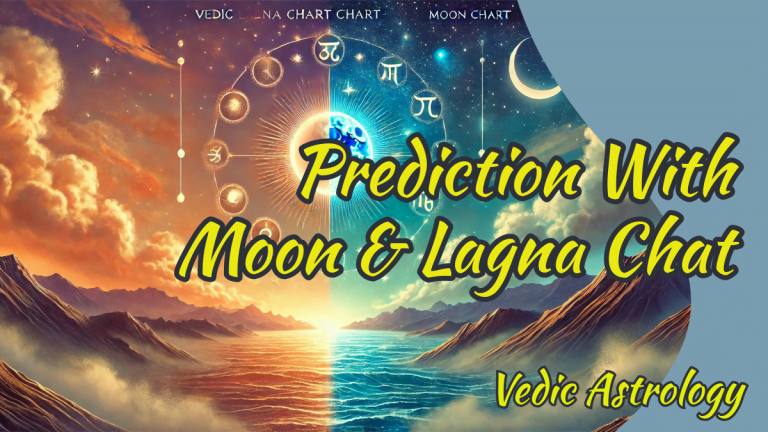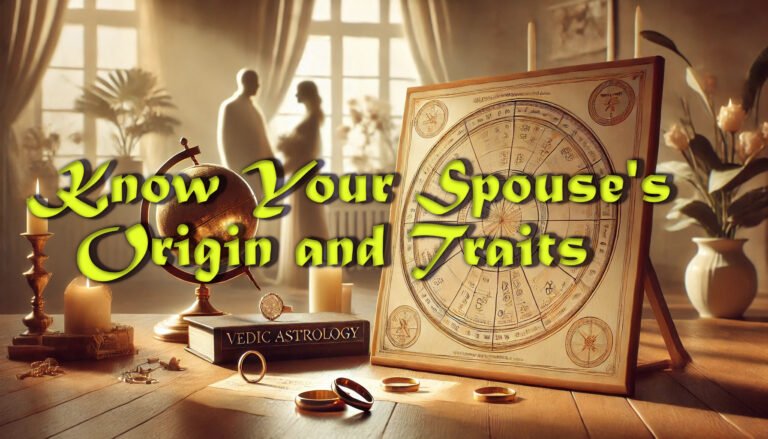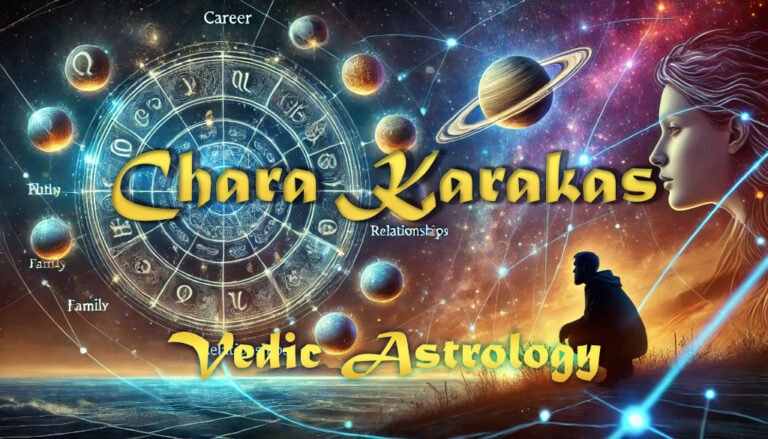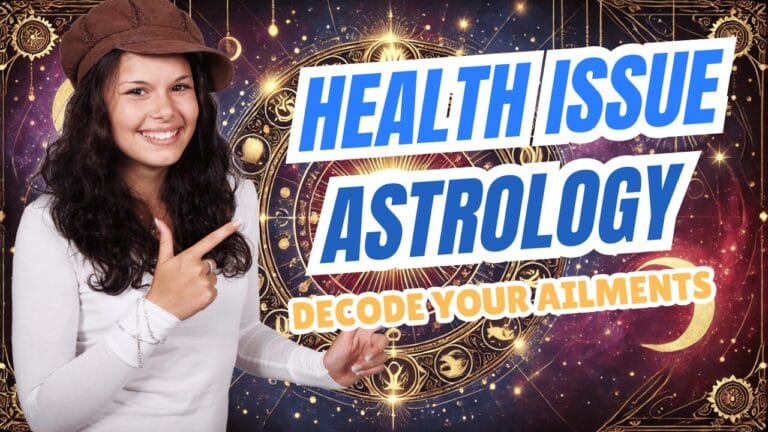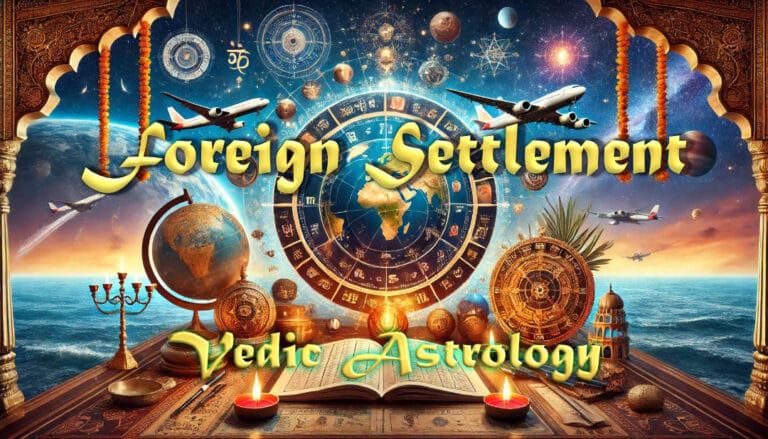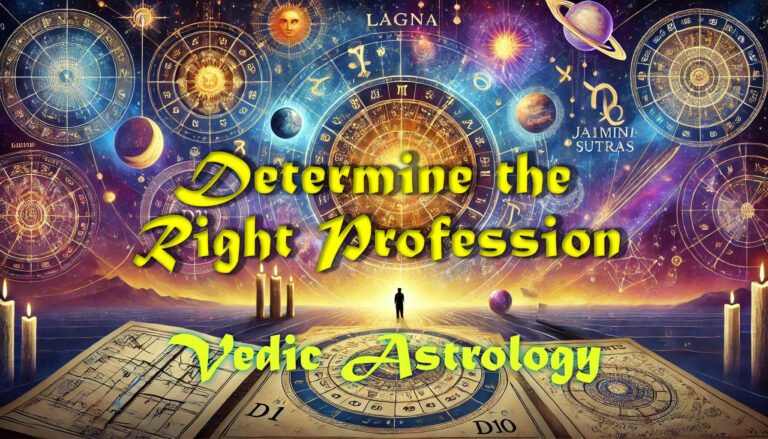Understanding Devgan, Manushya gan, Rakshas gan in Vedic Astrology: Traits, Examples, and Compatibility Insights
Understanding Devgan, Manushgan, and Rakshasgan in Vedic Astrology: Traits, Examples, and Compatibility Insights
Introduction
In Vedic astrology, the concept of Ganas—Devgan, Manushgan, and Rakshasgan—plays a significant role in defining the innate temperament, personality, and compatibility of individuals. These classifications are derived from the Moon’s position in the Janma Nakshatra (birth star) and help astrologers provide deeper insights into an individual’s nature and relationships.
From the example below we can see the Native’s Moon was in Chitra Nakshatra from Jagannatha Hora Software:

In this blog, we will delve into the meaning of each Gana, their characteristics, examples, and their importance in matchmaking.
What Are Ganas in Vedic Astrology?
The Ganas represent the three primary archetypes of human nature, which are:
- Devgan (Divine Nature)
- Manushgan (Human Nature)
- Rakshasgan (Demonic Nature)
Each Nakshatra (lunar mansion) is associated with one of these Ganas. By identifying an individual’s Nakshatra, astrologers can determine their Gana and interpret their personality traits and approach to life.

Devgan (Divine Nature)
Overview:
Individuals belonging to the Devgan category are often calm, spiritual, and compassionate. They embody purity, selflessness, and a strong sense of morality, making them idealistic and peace-loving.
Key Traits:
- Inclined towards spiritual growth and self-improvement.
- Gentle, harmonious, and forgiving nature.
- Avoid conflicts and strive for balance in life.
Strengths:
- Compassionate and empathetic.
- Highly intuitive and wise.
Challenges:
- Can appear overly idealistic or passive.
- May struggle to assert themselves in competitive environments.
Examples of Devgan Nakshatras:
Ashwini, Pushya, Hasta, Anuradha, Revati, Swati.
Example Scenario:
Imagine a person born under the Pushya Nakshatra. They may excel in spiritual practices like meditation and yoga and be drawn to professions like healing, teaching, or social service.
Manushgan (Human Nature)
Overview:
Manushgan individuals represent the balance between spiritual and material worlds. They are pragmatic, approachable, and focused on achieving tangible results while maintaining emotional stability.
Key Traits:
- Practical and goal-oriented.
- Emotional but capable of self-control.
- Diplomatic and adaptable in social settings.
Strengths:
- Reliable and balanced.
- Skilled at navigating challenges with logic and empathy.
Challenges:
- May struggle with indecisiveness due to their balancing nature.
Examples of Manushgan Nakshatras:
Bharani, Rohini, Purva Phalguni, Uttara Ashadha, Purva Bhadrapada.
Example Scenario:
A native of the Rohini Nakshatra might be drawn to careers in arts or business, balancing creativity with a practical approach to success. They may also excel in maintaining long-term relationships due to their emotional intelligence.
Rakshasgan (Demonic Nature)
Overview:
Rakshasgan individuals are assertive, ambitious, and determined. They embody strength and power, often pursuing their goals with great intensity and focus. While the term “demonic” may sound negative, it simply reflects their strong-willed and tamasic nature.
Key Traits:
- Bold, fearless, and ambitious.
- Skilled leaders and problem-solvers.
- Protective of loved ones but can be dominating.
Strengths:
- Courageous and resourceful.
- Thrive under pressure and take bold initiatives.
Challenges:
- May struggle with anger, impatience, or a tendency to overpower others.
Examples of Rakshasgan Nakshatras:
Krittika, Ashlesha, Magha, Chitra, Jyeshtha, Shatabhisha.
Example Scenario:
A native of the Magha Nakshatra might excel in leadership roles, such as running a business or taking charge of complex projects. Their determination and confidence often inspire those around them, though they may need to work on tempering their assertiveness.
Importance of Ganas in Marriage Compatibility
In Vedic astrology, the compatibility between Ganas is crucial in Kundli matching for marriage. A harmonious Gana pairing can contribute to a stable and happy relationship, while mismatched Ganas might indicate potential conflicts.
General Compatibility Rules:
- Same Gana Match (e.g., Devgan with Devgan): Highly harmonious due to shared values and temperaments.
- Devgan with Manushgan: Generally positive, as both Ganas value balance and understanding.
- Rakshasgan with Devgan or Manushgan: May require effort to resolve differences, as Rakshasgan’s assertiveness can clash with the other’s softer nature.
Example:
A Rohini Nakshatra (Manushgan) native might find compatibility with an Ashwini Nakshatra (Devgan) partner due to their complementary traits—practicality blending with spirituality. However, they might face challenges with a Chitra Nakshatra (Rakshasgan) partner unless there is mutual understanding and compromise.
Why Ganas Matter in Understanding Personality
The Ganas provide valuable insights into an individual’s innate behavior and preferences. They can help in:
- Self-Discovery: Understanding one’s strengths, challenges, and life purpose.
- Improving Relationships: Navigating differences and building stronger bonds.
- Career Choices: Aligning one’s work with their natural inclinations.
Conclusion
The classification of Devgan, Manushgan, and Rakshasgan in Vedic astrology is a profound system that helps decode human nature. By understanding these archetypes, you can unlock insights into personality, relationships, and life paths. Whether you’re seeking self-awareness or compatibility in relationships, knowing your Gana is an essential step in the journey of astrology.
FAQs About Ganas in Astrology
Q1. How can I find my Gana?
Your Gana is determined by the Nakshatra in which the Moon was placed at your birth. Consult an astrologer or use online tools for an accurate analysis.
Q2. Can Gana mismatch affect marriage?
While Gana mismatches might indicate differences, other factors like planetary aspects, doshas, and overall compatibility also play a role.
Q3. Are Rakshasgan people negative?
No, Rakshasgan individuals are not inherently negative. They are assertive, ambitious, and protective, traits that can be positive when channeled correctly.
By understanding your Gana and its influence on your life, you can harness your strengths and work towards personal and relational harmony. Would you like to explore your Nakshatra or compatibility further? Let me know in the comments below!


